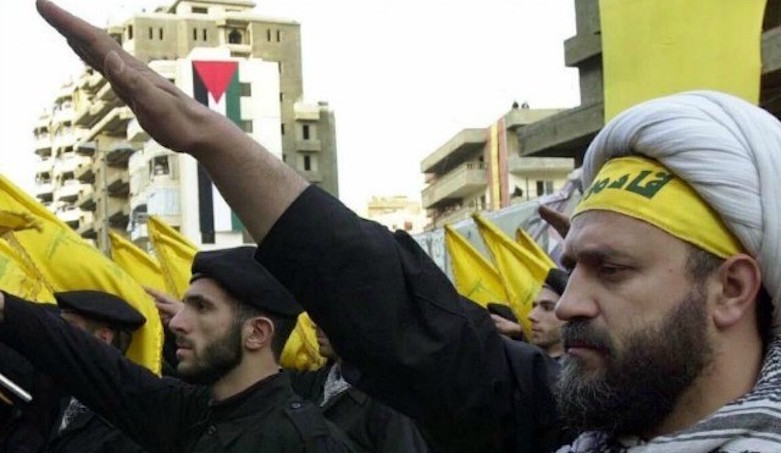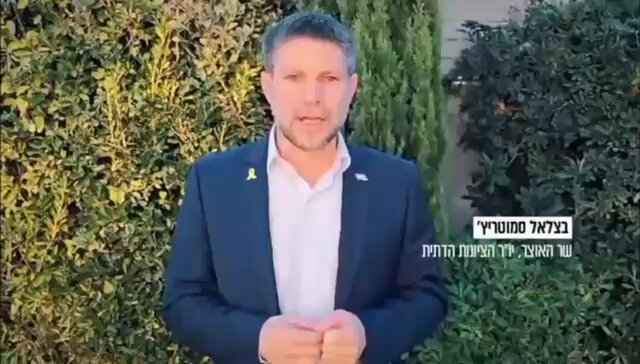
 USA wysłały ponad 3 miliardy dolarów “armii” Hezbollahu
USA wysłały ponad 3 miliardy dolarów “armii” Hezbollahu
Daniel Greenfield
Tłumaczenie: Małgorzata Koraszewska
Administracja Bidena wysłała niedawno dodatkowe miliony
W 2006 r., po inwazji Hezbollahu, Izrael rozpoczął kampanię militarną przeciwko islamskiej grupie terrorystycznej. Po miesiącu walk administracja Busha wymusiła zawieszenie broni na mocy rezolucji Rady Bezpieczeństwa ONZ nr 1701, która wymagała rozbrojenia Hezbollahu i zastąpienia go przez armię libańską i siły „pokojowe” ONZ.
Jak Hezbollah może ogłosić zwycięstwo, zastanawiał się prezydent George W. Bush, skoro „miał zostać zastąpiony przez armię libańską i siły międzynarodowe”?
Odpowiedź była całkiem oczywista. Libańska armia [LAF] i UNIFIL nie zastąpiły Hezbollahu, zostały przez niego przejęte. A prawie dwie dekady później Hezbollah miał o wiele większą siłę ognia i próbował uruchomić własną wersję 7 października, którą Izrael zneutralizował operacją pagerów.
A potem administracja Bidena wynegocjowała kolejne „zawieszenie broni”, na mocy którego Hezbollah ma zostać zastąpiony przez armię libańską i siły pokojowe ONZ. Podobnie jak Hezbollah, LAF i UNIFIL miały to zrobić 18 lat temu. Ale tego nie zrobiły.
Aby rozbroić Hezbollah, armia libańska potrzebowałaby pozwolenia od rządu, w którym jest Hezbollah. A Hezbollah raczej nie upoważni kontrolowanego przez siebie rządu do rozbrojenia samego siebie.
Rzecznik Hezbollahu Mohammad Afif odpowiedział, przechwalając się, że nikt nie będzie „w stanie zerwać więzi między armią” a grupą terrorystyczną, która jest „silna i solidna i taka pozostanie”. Znaczna część libańskich sił zbrojnych jest lojalna wobec Hezbollahu, w tym oficerowie przeszkoleni przez Hezbollah lub przez Syrię, więc finansując LAF, finansujemy Hezbollah.
Stany Zjednoczone nie tylko popełniły błąd, po raz kolejny powtarzając tę samą nieudaną politykę, lecz także od 2006 r. przekazały ponad 3 miliardy dolarów libańskiej armii.
Te pieniądze nie zostały wykorzystane do rozbrojenia lub zastąpienia Hezbollahu. Nie zostały wykorzystane do zaprowadzenia pokoju w regionie. Nawet kampania LAF i Hezbollahu przeciwko ISIS w 2017 r. zakończyła się porozumieniem o zawieszeniu broni między sunnickimi i szyickimi islamskimi grupami terrorystycznymi, podczas gdy LAF odwracała wzrok.
I Stany Zjednoczone musiały walczyć z terrorystami z ISIS, ponieważ LAF i Hezbollah nie chciały tego zrobić.
W latach, w których USA dostarczyły LAF ponad 3 miliardy dolarów, arsenał Hezbollahu wzrósł z 15 tysięcy rakiet do ponad 150 tysięcy. Center for Strategic and International Studies oszacowało, że Hezbollah „drastycznie rozbudował swoje siły zbrojne od 2006 r.” i chociaż większość tej pomocy pochodziła z Iranu, jest bardzo prawdopodobne, że amerykańskie szkolenie wojskowe i broń dostarczona LAF również bezpośrednio lub pośrednio przyniosły korzyści Hezbollahowi.
Konflikt Izraela z Hezbollahem w 2024 r. ostatecznie pokazał, że rezolucja ONZ 1701, LAF i UNIFIL nie tylko nie rozbroiły islamskiej grupy terrorystycznej, ale stanowiły parawan dla jej rozwoju. Mimo to administracja Bidena wymusiła niemal identyczne kolejne porozumienie na Izraelu.
To, co nie działało przez ostatnie 18 lat, tym razem miało w jakiś sposób zadziałać.
Po wydaniu ponad 3 miliardów dolarów, które poszły wyłącznie na wsparcie fasady Hezbollahu, administracja Bidena wycofała część pieniędzy z pomocy wojskowej dla Izraela i Egiptu, i skierowała je do LAF: 95 milionów dolarów poprzednio przeznaczonych na pomoc w obronie Egiptu i 7,5 miliona dolarów na pomoc w obronie Izraela przekazano obecnie LAF.
W zeszłym roku kongresman Greg Steube przedstawił PAGER Act (Preventing Armed Groups from Engaging in Radicalism), by powstrzymać „wysyłanie pieniędzy amerykańskich podatników do Libanu, gdy są oni współwinni wspierania organizacji terrorystycznej, której głównym celem jest zniszczenie Ameryki i Izraela”.
„Przez dwa lata składałem poprawkę do projektu ustawy ‘State, Foreign Operations, and Related Programs Appropriations’, aby wyeliminować finansowanie libańskich sił zbrojnych, ponieważ pieniądze trafiają do Hezbollahu. Republikanie i Demokraci nadal ją odrzucają” – skarżył się Steube.
Departament Stanu przez prawie dwadzieścia lat sprzedawał mit, że wzmocnienie LAF osłabi Hezbollah, ale po wydaniu 3 miliardów dolarów Hezbollah jest potężniejszy niż kiedykolwiek, podczas gdy amerykańscy podatnicy muszą finansować siły pomocnicze Iranu, mając nadzieję na ich pokonanie.
Hezbollah nie rozbroi się, LAF nie rozbroi go ani nie zapobiegnie atakom na Izrael, ponieważ cała równowaga sił w Libanie zależy od skierowania broni Hezbollahu na Izrael.
Zgodnie z porozumieniem Taif z 1989 r. wszystkie libańskie milicje miały się rozbroić i przekazać władzę LAF. To podstawa rezolucji ONZ nr 1701 i najnowszego porozumienia o zawieszeniu broni. Podstawą zwolnienia Hezbollahu ze zobowiązań porozumienia Taif jest jego kampania przeciwko Izraelowi. Prowadząc wojnę przeciwko Izraelowi, Hezbollah zabezpiecza swoje prawo do posiadania własnej armii.
Gdyby Hezbollah naprawdę przestał atakować Izrael lub gdyby libański rząd zabezpieczył granicę, Hezbollah straciłby podstawę prawną do posiadania armii. Wtedy albo libański rząd musiałby rozbroić Hezbollah, albo przyznać, że porozumienie z Taif było farsą, która oddała Liban Hezbollahowi i jego zwolennikom w Teheranie. A Hezbollah musiałby przyznać, że prawdziwym celem jego armii jest zdominowanie libańskich chrześcijan przez szyitów.
Każdy w Libanie wie, że to wszystko prawda, lecz nikt nie może powiedzieć tego głośno.
Pozwolenie Hezbollahowi na kontrolowanie granicy i atakowanie Izraela jest ceną za utrzymanie marionetkowego reżimu Hezbollahu u władzy w Bejrucie. Pozwala różnym graczom w rządzie, w tym Hezbollahowi i jego chrześcijańskim marionetkom dhimmi, udawać, że Hezbollah nie rządzi Libanem.
Faktyczne rozbrojenie Hezbollahu doprowadziłoby do kolejnej wojny domowej. Takiej, w której bez izraelskiej interwencji militarnej grupa terrorystyczna wygrałaby, a która oficjalnie zamieniłaby Liban w kolejny Iran, Syrię lub Irak: kraj rządzony przez szyickich duchownych i ich terrorystyczne milicje. W końcu ten dzień nadejdzie, ale podtrzymywanie iluzji, że Hezbollah jest antyizraelskim ruchem „oporu”, pozwala innym frakcjom opóźnić moment prawdy o kilka lat.
Powtarzające się wojny z Izraelem są częścią ceny, jaką płacą za ten układ.
3 miliardy dolarów, które Ameryka roztrwoniła na LAF, podobnie jak jeszcze większe sumy wydane na uzbrojenie i szkolenie irackiej armii, nie zniweczyły rządów szyitów, lecz je umożliwiły.
Ustawa PAGER kongresmana Steube’a odcięłaby dalsze fundusze dla LAF do czasu, aż „Libańskie Siły Zbrojne zaprzestaną współpracy z Hezbollahem i wspierania go” oraz „Libańskie Siły Zbrojne zaprzestaną współpracy z Iranem”.
Jeśli LAF rzeczywiście stanowi przeciwwagę dla Hezbollahu, to dlaczego sprzeciwiać się ustawie?
Jedynym powodem sprzeciwu wobec ustawy PAGER jest to, że politycy doskonale wiedzą, że LAF współpracuje z Hezbollahem i chętnie przesyłają pieniądze, opierając się na obietnicy, że jeśli odpowiednio dozbroimy libańskie wojsko, pewnego dnia będzie ono gotowe do walki z Hezbollahem.
Ten dzień nie nadszedł przez 18 lat. Nie nadejdzie. Nigdy.
LAF-owi ciągle brakuje pieniędzy, wynajmuje helikoptery na wycieczki krajoznawcze i opóźnia wypłaty dla żołnierzy, zmuszając nas do interwencji i wystawiania większej liczby czeków, ponieważ jest to skorumpowana organizacja ołowianych żołnierzyków, którzy są tam, aby chronić terrorystów. Rząd Libanu jest marionetkowym reżimem Hezbollahu. LAF jest marionetkową armią.
Czas pozbyć się opaski na oczach, pozbyć się wymówek i przestać wysyłać pieniądze terrorystom.
Daniek Greenfield – amerykański niezależny publicysta.
Zawartość publikowanych artykułów i materiałów nie reprezentuje poglądów ani opinii Reunion’68,
ani też webmastera Blogu Reunion’68, chyba ze jest to wyraźnie zaznaczone.
Twoje uwagi, linki, własne artykuły lub wiadomości prześlij na adres:
webmaster@reunion68.com






